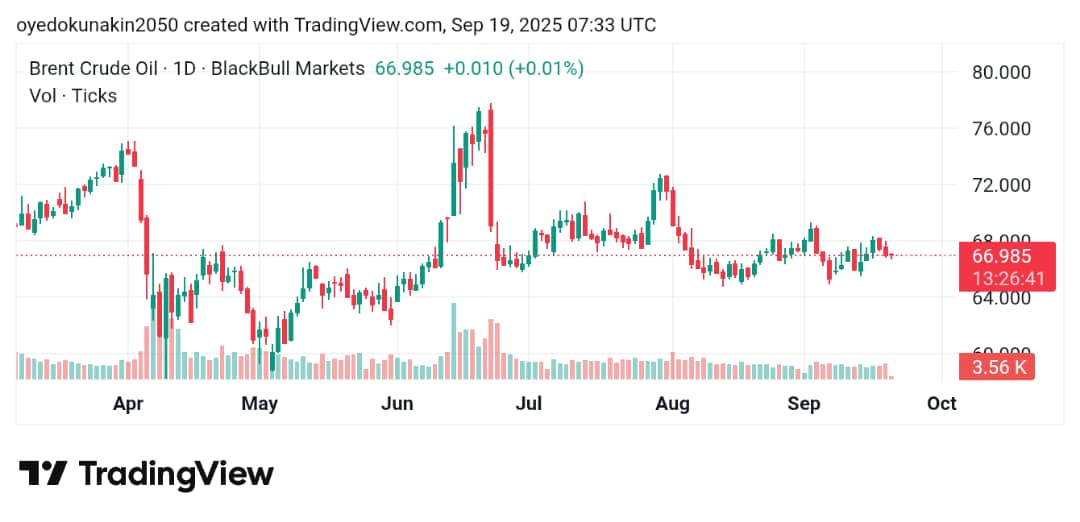
Akintunde Oyedokun
Research Analyst
Crude prices eased on Monday, with Brent settling at $66.57 a barrel and WTI at $62.64, as rising exports from Iraq and Kuwait’s higher production capacity deepened oversupply worries. Geopolitical tensions in the Middle East and Eastern Europe failed to trigger supply disruptions, keeping traders focused on market fundamentals. Both benchmarks had already fallen over 1% last week on fears of weakening demand.
Germany’s Tax Income Rises as Economy Struggles to Recover
Germany’s tax revenues grew 2% in August to €63.2 billion, the finance ministry reported, but warned there is little sign of an economic rebound in the near term.
Between January and August, revenues rose 6.8% to €576.5 billion, with 2025 full-year receipts expected to climb 3.7% to €893.3 billion. Europe’s biggest economy, which shrank again in 2024, faces added pressure from U.S. tariffs and sluggish global demand, leaving growth prospects muted
China Keeps Lending Rates Unchanged for Fourth Month
China held its one-year LPR at 3.0% and five-year at 3.5% in September, marking a fourth straight month of no change. The decision reflects a cautious approach to monetary policy despite weak factory and retail data. Authorities are balancing signs of a domestic slowdown with resilient exports, a strong stock market, and easing Sino-U.S. trade tensions. Analysts expect modest cuts in rates and the reserve requirement later this year, while investors watch October’s fourth plenum for further policy direction. The Shanghai Composite continues to hover near decade highs, signaling market optimism amid economic uncertainties.
DR Congo To Resume Cobalt Exports With Quotas
The Democratic Republic of Congo will lift its cobalt export ban on October 16, imposing annual quotas to manage supply. Miners can export 18,125 tons for the rest of 2025, rising to 96,600 tons in 2026 and 2027. The move, supported by Glencore but opposed by China’s CMOC, aims to stabilize prices amid falling cobalt values and ongoing conflict in eastern Congo. Ten percent of future exports will be reserved for national projects, with quotas subject to review.
Nigeria’s Q2 Growth Hits 4.23%, Fastest Since 2021
Nigeria’s economy grew 4.23% year-on-year in Q2 2025, its fastest pace in nearly four years, driven by higher oil production and strong industrial and agricultural output. The growth figures follow a recent GDP rebasing to better reflect structural changes in the economy. Oil output averaged 1.68 million barrels per day, boosting the sector by 20.46%, while industry and agriculture grew 7.45% and 2.82%, respectively. Economist Bismarck Rewane noted the rebasing helped reflect current economic realities. President Bola Tinubu is targeting 7% annual growth this year, up from 6% in 2023, while implementing subsidy reforms.










